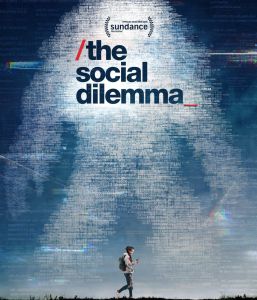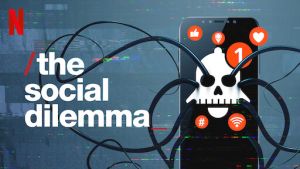Being one of the most talk-about documentaries of the fall, “The Social Dilemma” tackles how smartphones and social networks have manipulated human psychology to influence human behavior.
The Netflix documentary-drama “The Social Dilemma,” directed by Jeff Orlowsk, on Netflix at the beginning of September. It was on the streaming platforms “Top 10 list” for a while when it premiered. “The Social Dilemma” examines the many ways social media and social networking companies have influenced human psychology to rewire the brain and the impact it had on these three parts of society. The film describes mental health, democracy and discrimination as the three dilemmas.
Throughout the documentary-drama, they feature many psychology experts to interviews with ex-Silicon Valley engineers from various companies such as Facebook and Google.
The engineers in the film are people who designed the technology, so they go into detail about the ways the tech giants are manipulating their users through a range of different services. For example, the creator of the infamous “like” button on Facebook, Justin Rosenstein, discusses how he created the button to “spread positivity,” but it ended up making people feel bad about themselves. The film explains the effects the button had on mental health especially young teens.

Some of the people being interviewed in the film had more of a broad picture.
“If we go down the status quo, for let’s say another 20 years,” he states, “we probably destroy our civilization through willful ignorance … fail to meet the challenge of climate change … degrade the world’s democracies so they fall into some type of autocratic dysfunction … ruin the global economy. We probably don’t survive,” Jaron Lainer, considered the founder of VR, said.
Some of the points and ideas being made in the film are hard to grasp, so to easily depict the points that are being made, the director added scripted sections throughout the film centered around them.
One of the centers of the scripted sections around a family that has been torn apart because of social media grabs on their attention. and also the son getting sucked into conspiratorial rabbit hole extreme political videos on his social media which highlights the discrimination dilemma. Another fictional part of the film highlights the vulnerability of teenagers who use social media platforms. The film uses a teenage girl and the effect it had on her mental health.
According to the director Jeff Orlowski, the film was made after he directed two films about climate change and saw another threat to humanity.” We saw a direct a parallel between the threat posed by the fossil fuel industry and the threat posed by our technology platforms. The climate change of culture,” an invisible force that is shaping how the world gets its information and understands the truth. Our hope has always been to work on big issues, and we now see “the social dilemma” as a problem beneath all our other problems,” Orlowski said on socialdilemina.com, the official website for the film.

The film is important because it highlights how even those platforms and technology have benefited us in so many ways such as easily staying connected with family and friends. These platforms and technology have also had a huge negative effect on the world.“I say it’s a good thing because people can learn certain topics or events they never heard of before for example during the past few months people have been learning more about black history. I say it’s also a bad thing because social media tends to lead people into believing certain things that aren’t true,” Troy Norman, sophomore graphic design major, said.
Overall the ratings and reviews of the film have been very good. The film was rated a 7.7 out of 10 on IMDb and 87 percent on Rotten Tomatoes.
“The Social Dilemma” is remarkably effective in sounding the alarm about the incursion of data mining and manipulative technology into our social lives and beyond. Orlowski’s film is itself not spared by the phenomenon it scrutinizes.” Devika Girish from the New York Times said. Even with a film with such great overall feedback, there were some unanswered questions. “But after all these tech figures’ explanations about how effective they and their companies were at hijacking human psychology for profit— the rhetoric falls a little flat,” Michelle Gao from CNBC said. Shouldn’t the tech industry itself be able to do more? “The Social Dilemma” still seems to put the onus on us, the users, when it should be asking more of its participants, ” said Gao


